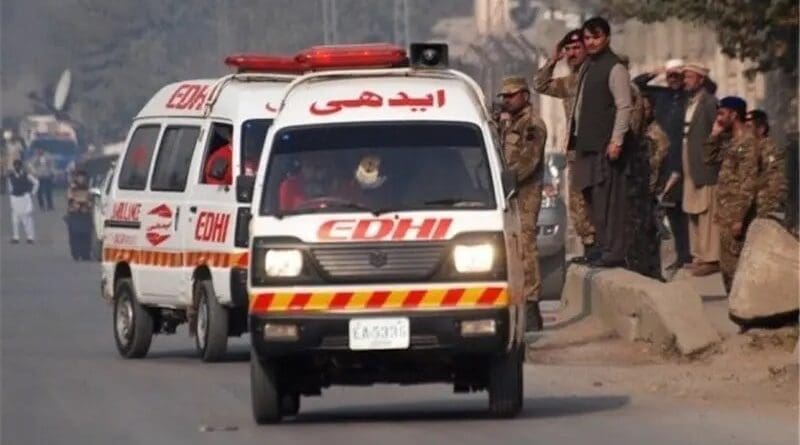The Aftermath Of The APS Attack In Peshawar: A Legal Perspective On Counterterrorism – OpEd
By Shehla Rahim
The wounds inflicted by the Tehreek-e-Taliban Pakistan’s (TTP) horrific attack on the Army Public School (APS) in Peshawar on December 16, 2014, still resonate in the hearts and minds of every Pakistani. This tragic event, which claimed the lives of 144 individuals, including 124 children, left an indelible mark on the nation. Each year, on December 16, the nation comes together to pay homage to the martyrs and reaffirm its collective resolve to defeat terrorist outfits and extremist ideologies. The APS attack was a brutal attempt by the TTP to shatter the spirit of Pakistanis, particularly by targeting innocent students. However, in response to this tragedy, the civil and military leadership conceptualized the National Action Plan (NAP) to eliminate the perpetrators of the APS attack and prevent further violence.
Under the NAP, the establishment of military courts marked a landmark event in Pakistan’s war against terrorism. The 21st Amendment to the Constitution introduced military courts for two years as a last resort due to the judicial system’s paralysis caused by the onslaught of terrorists. While the defense forces, law enforcement, and intelligence agencies conducted operations with utmost care to avoid collateral damage, the existing ordinary courts and prosecution mechanisms proved insufficient to deal with the relentless and sophisticated nature of terrorist attacks. The need for extraordinary measures became evident, leading to the establishment of military courts.
The military courts played a pivotal role in Pakistan’s legal victory over terrorists, particularly those involved in the APS attack. Security forces successfully arrested 12 terrorists and neutralized others during operations. Notably, the mastermind of the APS attack, TTP chief Mullah Fazlullah, and the master planner, Umar Mansoor Naray, were eliminated in subsequent years. The military courts conducted trials, handing death sentences to six main terrorists involved in the APS attack.
The then army chief General Raheel Sharif’s decision to lift the moratorium on the execution of death sentences in the NAP was a critical juncture. On December 2, 2015, authorities executed four terrorists involved in the APS attack in a civilian jail in Kohat. The military courts sentenced Molvi Abdus Salam, Hazrat Ali, Mujeeb-ur-Rehman, and Sabeel to death for their roles in the APS attack. Taj Muhammad, alias Rizwanullah, was hanged on May 24, 2017, while the matter of Atiqur Rehman remained pending in the Supreme Court.
The establishment of military courts was a response to the legal deficiencies in dealing with modern terrorism. The government recognized that the civil judicial system and laws were ill-equipped to handle technically advanced and sophisticated terrorists trained and aided by hostile agencies. Special laws were enacted to address terrorism-related cases, and amendments to the Pakistan Army Act of 1952 facilitated trials in military courts.
Comparatively, global counterterrorism measures in the USA and European countries have also seen exceptional legal arrangements despite their strong belief in democratic values, the rule of law, and human rights. The unique challenges posed by modern terrorism require extraordinary measures, and military trials have proven to be inevitable in addressing the terrorist threat in Pakistan. The judiciary’s support and the complementary efforts of military trials have strengthened the nation’s resolve against terrorists, making the NAP a milestone in this direction.
In conclusion, as Pakistan continues to grapple with unconventional threats especially animating from regional countries, the nation must recognize the importance of extraordinary measures like military trials in maintaining law and order. The APS attack, though tragic, prompted a comprehensive response through the NAP, demonstrating the nation’s commitment to eradicating terrorism. Strengthening security forces and upholding military trials are crucial components of this strategy, ensuring that terrorists do not escape the law and order in the country. The APS attack remains a somber reminder, but the legal victories achieved through military trials stand as a testament to Pakistan’s unwavering determination to counter terrorism effectively.

